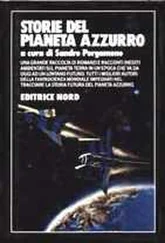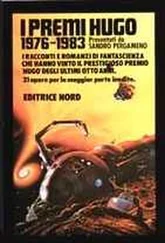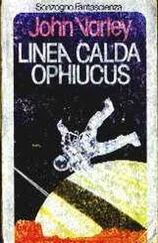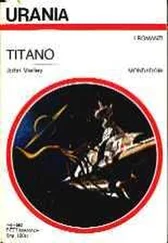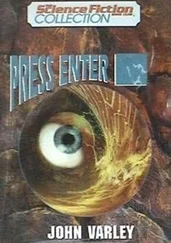"Winston. So that's why you talked your father into letting me in?"
"No. I could get a dog easily enough."
"Then I don't get it. I worked so hard to interest you."
"You did? That's neat. Hell, Hildy, I'd have asked you in if you'd just sat out there on your butt."
"Why?"
She stopped and turned to me, and the look on her face told me what was coming. I'd seen that look before.
"Because you work for the Nipple . It's my favorite pad. Tell me, what was Silvio really like?"
***
Most of my conversations with Gretel got around to Silvio sooner or later, usually after long and adoring detours through the celebrity underbrush of the current pre-pubescent idols of television and music. I'd interviewed Silvio a total of three times, been at social occasions where he was present maybe twenty times, exchanged perhaps a dozen sentences with him at those functions. It didn't matter. It was all gold to Gretel, who was easily twice as star-struck as most girls her age. She hung on my every word.
Naturally, I made up a lot. If I could do it in print, why not to her? And it was good practice for telling her all the intimate details of the teeny stars, few of whom I'd even heard of, much less met.
Is that awful? I suppose it is, lying to a little girl, but I'd done worse in my life, and how badly did it hurt her? The whole gossip industry, flagshipped by the Nipple and the Shit , is of questionable moral worth to begin with, but it's a very old industry, and as such, must fill a basic human need. I've apologized for it enough here. The biggest difference in my stories to her was that, when I was writing it, it was usually nasty gossip. My stories to her were usually nice ones. I viewed it as paying my keep. If Scheherazade could do it, why not Hildy Johnson?
***
I was grateful that she held my hand on that first stroll on the surface. Breathing is perhaps the most underrated pleasure in life. You notice it when something smells good, curse it when something stinks, but the rest of the time you don't even think of it. It's as natural as… well, see? To really appreciate it, try holding your mouth and nose closed for three minutes, or however long it takes to reach the edge of blackout. That first breath that brings you back from the edge of death will be the sweetest thing you ever tasted, I guarantee it.
Now try it for thirty minutes.
The oxygen in my new lung was supposed to be good for that long, with a five to seven minute margin. "Think of it as thirty," Aladdin had said, when he installed it. "That'll keep you safe."
"I'll think of it as fifteen," I retorted. "Maybe five." I'd been sitting in his clinic at the time, the left side of my chest laid open, the ugly gray mass of what had recently been my left lung lying in a pan on a table like so much butcher-shop special of the day.
"Don't talk," he warned. "Not when I'm doing respiratory-system work." He wiped a drop of blood from the corner of my mouth.
"Maybe one," I said. He picked up the new lung, a thing of shiny metal with some trailing tubes, shaped very much like a lung, and started shoving it into the chest cavity. It made wet sucking sounds going in. I hate surgery.
I'd have thought it was something brand-new but for my recent researches into vacuum technology. One part of it was revolutionary, but the rest had been cobbled together from things developed and set aside a long time ago.
The Heinleiners weren't the first to work on the problem of adapting the human body to the Lunar surface. They were just the first ones to find a more or less practical answer. Most of the lung Aladdin put inside me was just an air bottle, filled with compressed oxygen. The rest was an interface device that allowed the oxygen to be released directly into my bloodstream while at the same time cleansing the carbon dioxide. A few other implants allowed some of the gas to be released through new openings in my skin, carrying off heat. None of it was new; most of it had been experimented with as early as the year 50.
But the year 50 wasn't railroad time. The system wasn't practical. You still had to wear a garment to protect you from the heat and the cold, and it had to protect you from both -extremes never seen on Earth-while at the same time keeping the vacuum from your skin, bleeding off waste heat, and a host of other requirements. Such garments were available; I'd bought two of them within the last year. They were naturally much improved from the mummy bags the first space explorers wore, but they worked on the same principles. And they worked better than the implanted lungs. If you're going to have to wear a suit, after all, what's the point of a thirty-minute supply of air in place of a lung? If you plan much of a stay on the surface you're going to have to back-pack most of your air, just like Neil Armstrong did.
And the Heinleiners did, too, for longer stays. But they'd solved the problem of what to do with the suit: just turn it off when not in use.
I supposed they'd also solved the psychological problem of the suits, which was the panic reflex when one has not breathed normally for some time, but I suspected the answer was the same one a child learns in her first swimming lesson. Do it enough, and you'll stop being afraid.
I'd done it for fifteen minutes now, and I was still frightened. My heart was racing and my palm was sweating. Or was that Gretel's?
"You'll sweat quite a bit," she said, when I asked. "It's normal. That layer of air will stay pretty hot, but not too hot to handle. Also, the sweat helps to bleed off the heat, just like it does inside."
I'd been told the suit's distance from one's body fluctuated by about a millimeter in a regular rhythm. That varied the volume considerably, sucking waste air from inside you and expelling it into vacuum in a bellows action. Water vapor went along with it, but a lot just dripped down your skin.
"I think I'd like to go back in now," I mouthed, and must have done it well enough, because I heard her say "Okay," quite clearly. That was the same circuitry the CC used to talk to me in private, back when I was still speaking to him. Aside from the respirator/air supply/field generator, and a few air ducts, not much had needed to be done to prepare me for field suit use. Some of that's because I was already wired to a fare-thee-well, as the CC had pointed out on my direct interface jaunts. Some adjustments had been made to my eardrums to keep them from hurting in fluctuating pressures, and a new heads-up display had been added so that when I closed my eyes or just blinked, I saw figures concerning body temperature and remaining air supply and so forth. There were warning alarms I'd been told would sound in various situations, and I didn't intend ever to hear any of them. Mostly, with a field suit, you just wore it. And all but a tiny portion of that, you wore inside.
The air lock I'd used to get into the secret warrens was only for inanimate objects, or people wearing inanimate objects, like the old-style suit I'd been wearing. If you had a field suit in, you simply stepped into the wall of mirror and your own suit melted into it, like a drop of mercury falling into a quicksilver pool. That was the only way to get through a null-field barrier other than turning it off. They were completely reflective on both sides. Nothing got through, not air, not bullets, not light nor heat nor radio waves nor neutrinos. Nothing .
Well, gravity got through, whatever gravity is. Don't seek the answer to that one in these pages. But magnetism didn't, and Merlin was working on the gravity part. Follow-up on that still to come.
Just before Gretel and I stepped through I saw part of the mirror wall distorted in the shape of a face. That was the only way to see through the wall, just stick your face in, and even that was tough to get used to. Gretel and her brother-what else?-Hansel did it as naturally as I'd turn my head to glance out a window. Me, I had to swallow hard a few times because every reflex I had was telling me I was going to smash my nose against that reflection of myself.
Читать дальше

